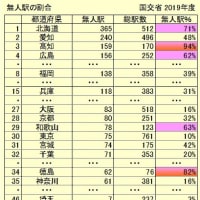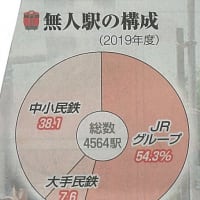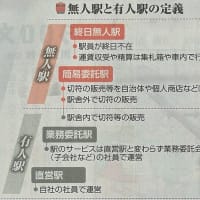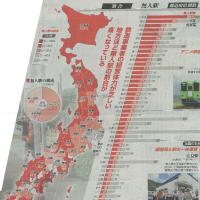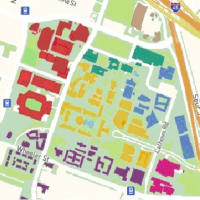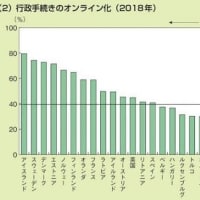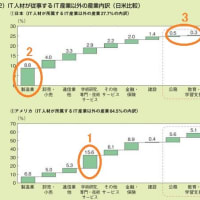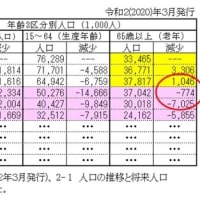想像の旅---アレクサンドリアの図書館(1)から続く。
3.ソクラテスの教え
一つ覚えの古代ギリシア語"Πλάτων"を頼りに、アレクサンドリア図書館のプラトンの著書を保管する書棚にたどり着いた。この"Πλάτων"の意味はプラトーン、英語ではPlato(プレイトゥ)、日本語はプラトンである。
その書棚には、プラトンが紀元前380年~370年頃に著した"Republic"(邦訳:「国家」プラトン著、藤沢令夫訳、岩波文庫、1979)がパピルスの巻物で収められている。その中身は、書き物を残さなかったソクラテスの「考えと教え」を弟子のプラトンがダイアログ(問答)形式で文書化したものである。もちろん、原文は古代ギリシア語、藤沢令夫訳の「国家」は1979年第1刷〜2012年第53刷発行のロングセラーである。
日本語の「問答」という言葉には硬くゴツゴツした感じがあるが、ソクラテスと弟子たちの「問答」は、ラフな服装の人たちのフリー・ディスカッションといった感じである。
参考だが、ここに紹介する英語の問答に出てくる"City"は日本語訳では「国家」になっているが、当時の国家は都市国家(City-state)だった。古代ギリシアでは、ギリシアという統一国家が存在したのではなく、アテネやスパルタなどといった都市国家の集まりだった。これに対して、ローマは最初から統一国家、後にローマはギリシアの都市国家を次つぎと吸収していった。
1)ソクラテスと弟子たちの問答
プラトンの書棚の前に立つと、不思議なことにそこはアテネの街になっていた。紀元前400年頃の立派な都市国家である。
石畳の小さな広場に5、6人のグループが何やら問答に花を咲かせている。60歳がらみのソクラテスと思しき男性と弟子たちの一行である。ソクラテスのすぐ近くに腰を下ろす体格のいい二十歳代の青年はプラトンらしい。
彼らの話の内容は、幸い、英語である。その英語は、日本の中学・高校の英語力で十分に理解できるレベル、訛のない素直な英語である。この英語には、難しい文学的な表現がないので問題はない。
話の内容は、生活必需品の自給自足とそれらを作る仕事の話である。普段の生活を振り返りながらソクラテスと弟子たちの問答は進んでいく。問答に聞き入るにつれて、つい忘れてしまうが、時は紀元前400年頃、電気も電話も車もない“古代”と云われる時代である。しかし、話の内容に違和感はない。
後ほど示す参考資料(英文)"Specialization Within the City (都市内での専門化)"は、彼らが交わす問答の中身である。
話の概要は、人はいろいろなものを必要とするが、独りでは作れない。食べものを作る人、家や着るものを作る人も必要、さらに靴を作る人も必要になる。必要最小限の生活をする場合は、街に住む人は4~5人とみられるが、必要なものが増えるにつれて、都市の構成員は次第に多くなる。
問答に出てくる次の①~④はキー・ポイントになるので、予めここにマークしておく。
①we are not born all exactly alike but different in nature,
スクラテス:人は生まれつき異なった性質をもっている。(後に示す英文①参照)
②“Then would you one man do his work better working at many crafts, or one man at one craft?”
“One man at one craft.”
注)craft=手作業で何かを作ること。
ソクラテス:人は多くの仕事をこなす場合と、一つの仕事をこなす場合どちらがうまくいくと思うか?
弟子:一つの仕事をこなすとき。(英文②参照)
③I don’t imagine the work will await the workman’s leisure;
ソクラテス:仕事は作業者が暇になるまで待ってくれない。(仕事は必要なときに必要)(英文③参照)
④more things of each kind are produced, and better, and easier, when one man works at one thing,
which suits his nature, and at the proper time, and leaves the others alone.”
注)leaves the others alone=他のことに手を出さない。
ソクラテス:人は、自分の性に合った一つの仕事に適切に打ち込むとき、より多くのより良い製品をより
簡単に作ることができる。(④参照)⇒筆者の解釈:「好きこそものの上手なれ」
2)古代ギリシアー紀元前400年頃の職業
彼らの問答では、さまざまな職業が話題になる。職業は社会的な分業であり、その社会の暮らし向きを映す鏡である。
後に示す参考資料(英文)に出てくる職業を、話の順にピックアップすると次のようになる。
farmer(農夫), builder(建築者), weaver(編む人), shoemaker(靴屋), craftsman(職人), carpenter(大工), smith(鍛冶屋), oxherd(牛飼い), shepherd(羊飼い), herdsman(家畜飼い), assistant(助手), trader(商人), shopkeeper(小売店主), retail dealer(小売商人), merchant(商人), wage-earner(賃金生活者)
また、職業に関係する経済用語のcoinage(貨幣制度)やtoken(商品引換票)も出てくる。
さらに「都市内での専門化」の後の13章にはluxurious city(贅沢な都市)の話があり、そこには次のような職業が出てくる。
huntsman(猟師), imitators with figures and colors and with music(ものの形や色や音楽を模倣する人たち), poet(詩人), rhapsodist(吟遊詩人), actor(俳優), chorus-dancer(舞台ダンサー), contractor(興行請負人), theatrical manager(劇場マネージャー), manufacturers of articles(道具の製造者たち), women's adornment(婦人装飾品職人), servitor(お供), tutor(教師), wet nurse(乳母), dry nurse(子守), beauty-shop lady(美容師), barber(理髪師), cook(料理人), chef(調理師), swineherd(豚飼い), doctor(医者)
また、職業ではないが、次のようなものの名前が出てくる。
couch(寝椅子), relish(ご馳走), myrrh(没薬/樹脂), incense(香の煙), girl(宴席にアテンドする若い女性), cake(菓子), painting(絵画), embroidery(刺しゅう), gold, ivory, similar adornments(金、象牙などといった類(タグイ)の装飾品)なども話題になる。
参考資料(英文):
1.出典:
下に掲げる"Specialization Within the City(都市内の専門化)"は、"CLASSICS IN INDUSTRIAL
ENGINEERING," edited by John A. Ritchy, pp. 5-9. Copyright 1964 by Prairie Publishing Company.からコピーした。
2.参考資料の補足説明:
1)プラトン著「国家」(全10巻)の1巻から4巻は、個人から国家レベルの「正義と不正」に対するソクラテスの考えと教えである。「不正をする方が得」という考え方や「不正の極致は、不正をするにもかかわらず正しい人間を装うこと」などが話題になる。今も昔も変わらない問題である。
2)下に示す「都市内の専門化」は、「国家」第2巻11章&12章の英語版のコピーである。
英文には1ヶ所、脱字(単語)らしきところがあるが、文意に影響がないのでそのままコピーした。
3)参考資料の④「性に合った仕事に打ち込み多くの良品を作る」という概念は、アダム・スミス(Adam Smith)の分業(division of labour)に発展する。
アダム・スミスの「国富論」1776年で紹介されたピン工場の分業は、生産性と品質の向上、工程の機械化と製造コストの低減に大きく貢献、産業の近代化を促進した。
さらに、人類は1950年代のコンピューターとともに自動化・ロボット化の時代を歩き始めた。
4)高校生にもどった気持ちで、古代ギリシア人の考えを理解したい。英文をそのまま自分なりに理解すればOK、無理に日本語に変換(和訳)する必要はない。古代ギリシア語と言語距離がより近いと思われる英語で、当時の人びとのことば(単語)とセンスに接したい。
5)文中、"I"=ソクラテス、"Adeimantos"=弟子の名前、プラトンは発言しない。
Specialization Within the City
“…A city, I take it, comes into being because each of us is not self-sufficient but needs many
things. Can you think of any other beginning could found a city?”
“No,” said he.
“So we each take in different persons for different needs, and needing many things we gather
many persons into one dwelling place as partners and helpers, and to this common settlement we give
the name of city. Is that correct?”
“Certainly.”
“Then one man gives a share of something to another or takes a share, if he gives or takes,
because he thinks he will be the better for it?”
“Yes.”
“Now then,” said I, “let us imagine that we make our city from the beginning. Our need will make
it, as it seems.”
“Of course.”
“Well, first indeed and greatest of our needs is the provision of food that we may live and be.”
“Assuredly.”
“Second, the need of housing, third of clothes and so forth.”
“That is true.”
“The next thing to ask is,” said I, “how the city shall suffice for all this provision. Will not one be
a farmer, one a builder, one a weaver? Shall we add a shoemaker to the list and someone else to look
after the body’s needs?”
“Certainly.”
“Then the smallest possible city will consist of four or five men?”
“So it seems.”
“Very good. Must each of these contribute his work to all in common--I mean must the farmer,
who is only one, provide food for four and spend four times as much time and trouble in providing
food, and share it with the others; or shall he neglect them, and provide only food himself, the
fourth part of the food, in a fourth part of the time, and spend the other three part of the time one
on the house, one on the clothes, one on the shoes? Is he to avoid the bother of sharing, and only
to look after himself and his own affairs?”
Adeimantos said, “Perhaps the first way is easier, Socrates.”
“That is quite likely, by heaven,” said I, “for it comes into my mind when you say it, that ①we are
not born all exactly alike but different in nature, for all sorts of different jobs, don’t you think so?”
not born all exactly alike but different in nature, for all sorts of different jobs, don’t you think so?”
“Yes, I do.”
②“Then would you one man do his work better working at many crafts, or one man at one craft?”
“One man at one craft.”
“One man at one craft.”
“And again, I think, it is clear that a man just wastes his labor if he misses the time when it is
wanted.”
“Yes, that is clear.”
“For ③I don’t imagine the work will await the workman’s leisure; the workman must follow his
work and not just take it by the way.”
“He must, indeed!”
“Consequently, ④more things of each kind are produced, and better, and easier, when one man
works at one thing, which suits his nature, and at the proper time, and leaves the others alone.”
works at one thing, which suits his nature, and at the proper time, and leaves the others alone.”
“Most certainly.”
“Then we need more citizens, Adeimantos, more than four to provide all we said. For the farmer,
as it seems, will not make his own plow, if it is to be a good plow, nor his mattock, nor the other
tools for working the land. Nor will the builder, and he, too, wants many others. So also the waver
and the shoemaker.”
“True.”
“Carpenters, then, and smiths, and many other such craftsmen, become partners in our little city
and make it big.”
“Certainly.”
“Yet it would still not be so very large, even if we were to add oxherds and shepherds and the
other herdsmen, that the farmers might have oxen for the plow, and the builders draught-animals to
use along with the famers for carriage, and that the weavers and shoemakers might have fleeces
and skins.”
“And not so very small either, if it had all these!”
“Furthermore,” I said, “to settle the city in such a place that imports will not be needed is almost
impossible.”
“Yes, impossible.”
“Then it will need others to import what it wants from another city.”
“It will.”
“But again, if our assistant goes empty, without taking with him any of the things needed by those
from whom people get what they need, he will return empty, won’t he?”
“I think so.”
“Then they must make at home not merely enough for themselves, but enough for those people
of whom they have need, and such things as those same people need.”
“So they must.”
“More farmers, then, and more other craftsmen will be necessary for our city.”
“Yes, indeed.”
“And more of the other assistants, I suppose, to export and import the various things. These are
traders, aren’t they?”
“Yes, they are.”
“So we shall want traders too.”
“Certainly.”
“And if the trade goes by sea, many other will be wanted besides who understand commerce
overseas.”
“Many others, indeed.”
“Now, in the city itself, how will they exchange the things which each class makes? For that is
the reason why we founded the city as a partnership.”
“By selling and buying,” he said, “that is clear, surely.”
“We shall have a market, then, as a result of this, and coinage as a token of the exchange.”
“By all means.”
“Suppose the farmer, then, brings in some of his products to market, or suppose any of the other craftsmen do, and suppose he comes at a time when those who want to exchange his goods for their own are not there, he will sit in the market and waste time from his work?”
“Not at all,” said he; “there will be some who, seeing this, appoint themselves for this particular
purpose. In cities properly managed these are generally the men weakest in body and useless for
other work. They must remain on the spot, about the market, and exchange money for the goods with
those who want to sell or give them goods for money if any people want to buy anything.”
“Then,” said I, “this need creates a class of shopkeepers in our city. We call them shopkeepers
or retail dealers, don’t we, when they are settled in the market to serve us in selling and buying, but
those who travel from city to city we call traders or merchants?”
“Certainly.”
“And there are others, I believe, who serve us, who have enough strength for the labors of bodily work, but nothing particular in their minds which makes them worthy to be partners. These sell the
use of their strength for a price which they call wages, and therefore, no doubt,
they are called wage-earners; what do you say?”
“I agree.”
“Wage-earners also then help to fill up our city.”
“Yes.”
“Now then, Adeimantos, has our city grown to perfection?”
“Perhaps.” ・・・
以上
想像の旅---アレクサンドリアの図書館(3)に旅続く。










